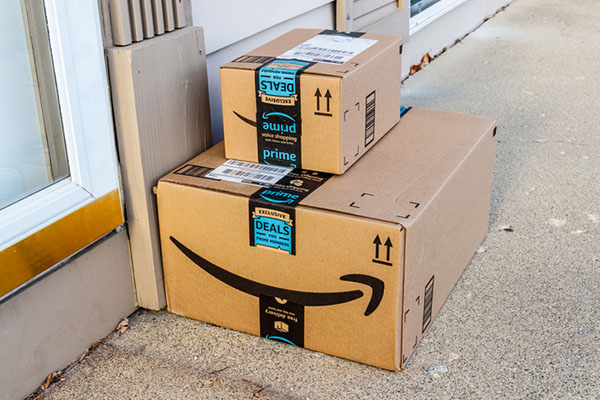Teamsters, other major unions call on FTC to study Amazon’s practices
Does Amazon have too much influence in the retail, freight and warehousing sectors of America? Put another way, at a quarter of a trillion dollars in revenue and growing 20% annually, is Amazon too big?
We’re about to find out.
The Teamsters and several other major labor unions are asking the Federal Trade Commission to open a far-reaching study into Amazon’s business practices. Simply put, the unions are asking the federal government whether its size is resulting in antitrust violations in various shipping and transportation industries.
Amazon generated $280.52 billion in revenue across all business segments during 2019. That’s up 20.5% from $232.89 billion the prior year. For 2019, Amazon reported net income of $11.59 billion, up from $10 billion the prior year.
The fact unions are asking the federal government to interfere in a behemoth the size of Amazon is interesting on its face. Adding to the intrigue is that Amazon’s leading stockholder is Jeff Bezos, who also owns the Washington Post and has become a constant target of President Donald Trump’s barbs for what he considers “unfair” news coverage, makes the case even more intriguing.
There already are signs the Trump administration has Amazon in its crosshairs. Late last year, the FTC expanded its investigation into Amazon to include its cloud computing business.
The unions’ latest petition is 28 pages long and contains 149 footnotes. It is asking the FTC to investigate whether Amazon requires companies to use more of its services to succeed on its marketplace, among other things.
Amazon countered that charge by saying it has created more than 500,000 jobs domestically. Those jobs pay at least $15 an hour, and also include full health care benefits.
In an op-ed published in The New York Times last month, Jay Carney defended the company. Carney, who was a White House spokesman in the Obama administration and now runs Amazon’s communications office, said that Amazon’s size and reach is beneficial.
“Because Amazon is a large company with hundreds of thousands of employees, as well as contractual relationships with hundreds of thousands of other businesses of all sizes, what we do can generate positive ripple effects across the country,” Carney wrote in the New York Times.
Since 2010, Carney claimed Amazon has contributed $270 billion to the U.S. economy. That includes payroll, construction, equipment and other business investments.
Amazon has run into headwinds not only from Trump. Last year a coalition of worker groups called Athena have started documenting complaints against Amazon. Competitors such as Wal-mart have funded research into negative impacts of Amazon.
Democratic presidential hopeful Bernie Sanders, I-Vt., also has weighed in against Amazon. So has Sen. Elizabeth Warren, D-Mass. Former Vice President and current Democratic presidential hopeful Joe Biden said last year, “Nothing against Amazon, but no company pulling in billions of dollars of profits should pay a lower tax rate than firefighters and teachers.”
Amazon is a double-edged sword for rival transportation companies. On one hand, it is a huge customer of the transport companies to whom they give freight. But at the same time, Amazon is quietly building its own delivery network through a series of small contractors and gig-economy drivers. It also operates a private fleet of trucks, using largely owner-operators, and air freight services.
At issue in the FTC complaint is whether Amazon forces third-party merchants to buy delivery fulfillment services that might not be necessary. Amazon says those services are optional, an issue rival carriers and unions may disagree.
Amazon is hardly alone in its desire to remain mostly union-free. Thousands of trucking companies operate non-union and say if a union were to organize their workers, it’s likely they would go out of business. But Amazon appears to be as fiercely anti-union as Federal Express Corp., a fact that founder Fred Smith makes no bones about.
In 2000, the Communications Workers of America tried but failed to organize Amazon’s customer service workers. Ever since, every significant attempt to unionize Amazon units has mostly failed.













